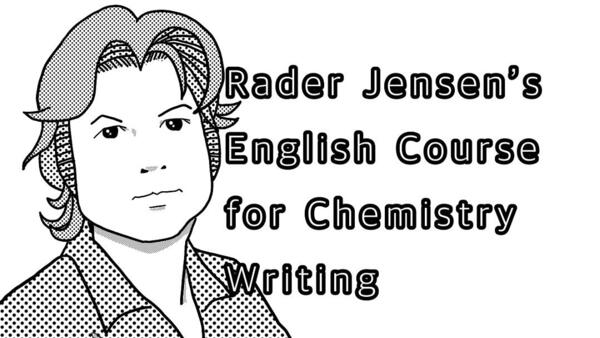CSJ Journals
[化学論文のための英語講座] 第29回:条件文または仮定文 Part1
(English version is here.)
条件文は、可能性、確率、希望を表すのに使用されます。この構文は事実と反する状況またはまだ起こらないことを述べます。条件文節のほとんどは「if」を使います。否定的な条件文では「if」の代わりに「unless」がよく使用されます。多くの条件文には過去形の動詞を使いますが、実際に過去に起こったことを述べていないので非現実的な過去と呼ばれる構文です。条件文の種類を幾つか見てみましょう。
I. 普遍的事実を述べる条件文
一般的な真実を述べる場合は、条件節と主節に単純現在形の動詞が使われます。この文法形式は確実に起こると思われること(普遍的事実)を述べます。例を見てみましょう。
1. If the complex is exposed to air, it rapidly decomposes.
訳文:その錯体は空気に晒されたら、すぐに分解する。
解説:この場合では、「if」の代わりに「when」も使えます。
2. When the complex is exposed to air, it rapidly decomposes.
解説:例文1と2は同じ意味です。
否定的な条件文でも同じ意味を伝えます。
3. Unless the compound is protected from air, it rapidly decomposes.
訳文:その錯体は空気から遮断されてない限り、すぐに分解する。
II. 仮定法現在
仮定法現在は、確実性の高い低いにかかわらず起こりえる条件と結果を述べます。この構文では、条件節は単純現在形、主節は単純未来形の動詞が使われます。例文を見てみましょう。
4. If this strategy is successful, it will open a path to further progress.
訳文:この戦略が成功すれば、さらなる前進への道が開けるでしょう。
解説:これは将来起こりえる結果を述べます。
次回も引き続き「条件文または仮定文」です。
Conditional and Hypothetical Sentences
Conditional sentences are used to express possibility, probability, and expectation. These constructs state a condition counter to fact or something that has not yet happened. Conditional phrases generally use if. Instead of if, negative conditional sentences often use unless. Many conditional statements use the past tense form of a verb, however, because they do not express a past event or condition they are called an unreal past tense. Let us look at several types of conditional statements.
I. Conditional statement expressing a universal reality
When expressing a general reality, a simple present tense verb is used in the conditional clause and the main clause. This grammatical structure can be thought to express a certain event (universal reality). Let us look at an example.
1. If the complex is exposed to air, it rapidly decomposes.
Explanation: In this sentence, in place of if, when can also be used.
2. When the complex is exposed to air, it rapidly decomposes.
Explanation: Sentences 1 and 2 have the same meaning.
A negative conditional sentence can convey the same meaning.
3. Unless the compound is protected from air, it rapidly decomposes.
II. Present subjunctive
The present subjunctive expresses outcomes that are possible with a high or low certainty. In this structure, a simple present tense verb in the conditional clause and a simple future tense verb in the main clause are used. Let us look at an example sentence.
4. If this strategy is successful, it will open a path to further progress.
Explanation: This expresses a possible, but not necessarily certain, future outcome.
To be continued in part 2.
